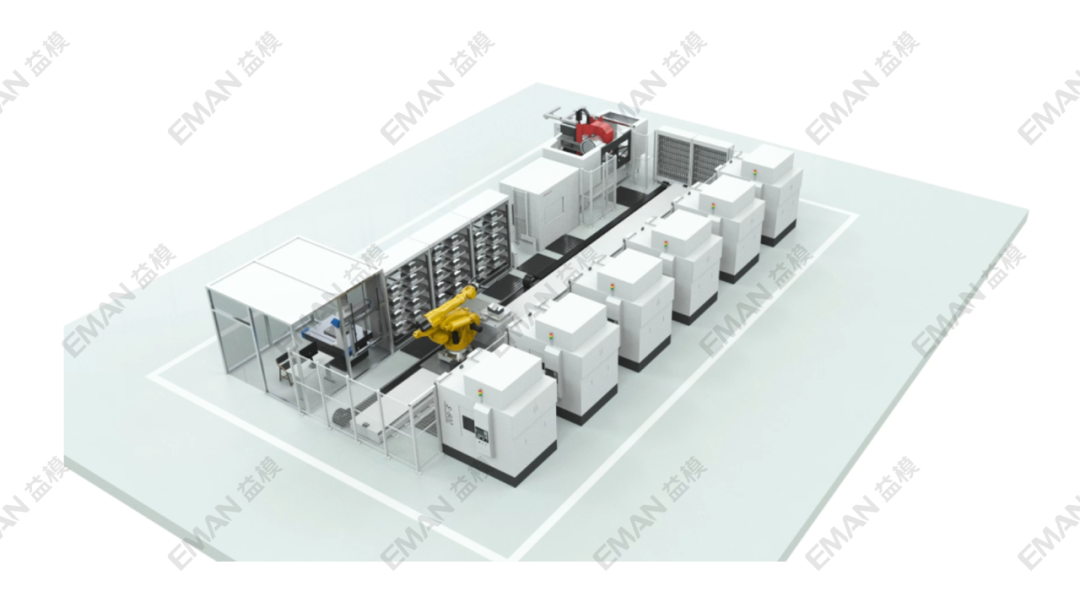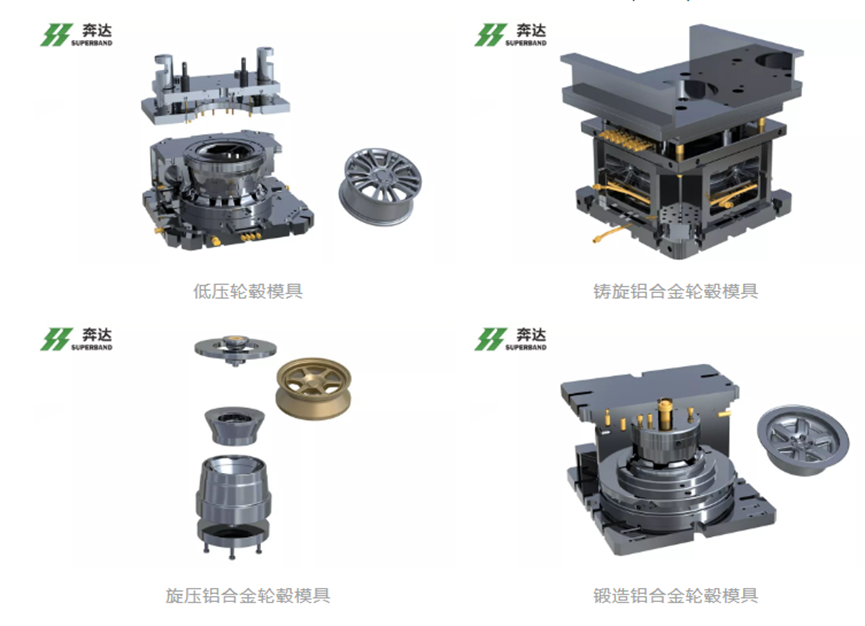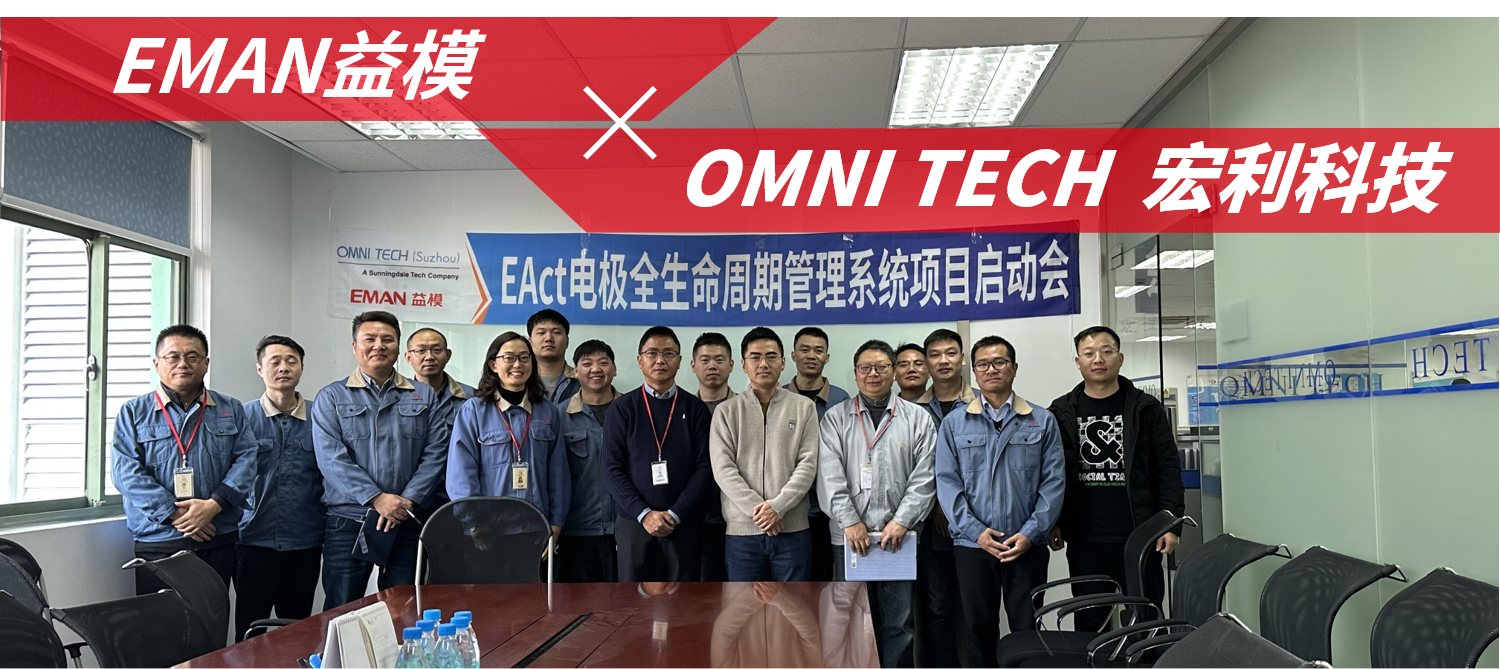EMan Mold Intelligent Manufacturing Management System
Digitalized Full-process Management of Mold Manufacturing

As a critical component of automotive parts, the wheel hub significantly influences the safety and handling of a vehicle. This safety is heavily reliant on the source of the wheel hub — the hub mold. In recent years, under the "dual carbon" energy-saving and environmental protection initiative, automotive lightweighting has become a global trend, with wheel hub lightweighting becoming an inevitable direction. Molds play an indispensable role in this industry transformation.
Automotive lightweighting not only imposes new requirements on materials but also challenges companies in their production processes and manufacturing lines. Intelligent manufacturing has become the strategic high ground for seizing new opportunities. Recently, the leading enterprise in the global automotive aluminum alloy casting mold industry, Foshan Nanhai Benda Mould Co., Ltd. (hereafter referred to as Benda), partnered with EMAN to jointly develop an innovative, large-scale flexible automated processing line for aluminum alloy casting molds, marking their third collaboration following projects involving mold MES and shop floor IoT and visualization.
Key Features of Benda's Large-Scale Flexible Automated Processing Line:
16meters
The total length of the track line.
700kg
The robot's load capacity.
Integration
Capable of automating and intelligentizing the processing, cleaning, and inspection of large wheel hub side molds, with the ability to output lightweight 3D inspection reports upon completion of all procedures.
External tool library
Integrated with an external tool library and on-machine 3D inspection probe, maximizing unmanned operation time and preventing manual clamping errors.
According to the plan, this versatile processing automation track line for side mold processing and inspection can seamlessly integrate with existing production management systems (MES) at the data source, retrieving tasks and reporting work, thus enabling lean monitoring of the completion status and results of each batch of parts.

Established in 1990, Benda specializes in a comprehensive approach to automotive aluminum alloy material performance, product design, equipment integration, casting processes, and mold technology. It is among the few global casting mold enterprises that possess research, design, and verification capabilities in both high-pressure and low-pressure casting processes. The company's main products include aluminum alloy wheel molds, chassis structural molds, and aluminum alloy high-pressure castings. Their production capacity for various casting molds exceeds 3,000 sets, with wheel mold production cycles requiring only 15-20 working days.

Over the past 30 years, Benda has made outstanding contributions to China's wheel hub industry, taking it from nonexistence to the world's largest scale. Through constant technological innovation, Benda has maintained its leadership position in the aluminum alloy casting mold industry in China. It has been a core supplier to leading Chinese wheel enterprises CITIC Dicastal and Lizhong Group for many years, has been featured in the top 20 casting mold producers in China, and holds the title of a nationwide hidden champion in niche markets. Benda is also the leading drafter of the industry standard "Low-Pressure Casting Molds for Automotive Aluminum Wheels" for the China Wheel Quality Association. It is recognized as a "specialized, refined, and innovative" enterprise in Foshan and is listed as a reserve enterprise for public offering.
To capitalize on the opportunities presented by automotive lightweighting, Benda redefined its strategic focus in 2018 with the "Three New Transformations" agenda: lightweighting, internationalization, and intelligentization. The company aggressively promotes intelligent manufacturing, initially implementing EMAN's mold MES in production management, achieving networked production equipment, intelligent production control, and data-driven resource management. This integration allows for automatic production data collection, visual dashboards, and the interoperability of business, technical, procurement, and production data to further reduce production cycles, stabilize product quality, and lower operational costs. Benda is increasing investment in automation along the mold processing lines.
Through three significant digital and intelligent projects, EMAN has helped Benda achieve transformational goals of reducing costs, headcount, and increasing efficiency, establishing a first-mover advantage and core competitiveness in the industry. The pioneering automated track line is anticipated to become a benchmark, advancing Benda's lean production to higher levels through the organic integration of informatization, mechanization, and automation.
